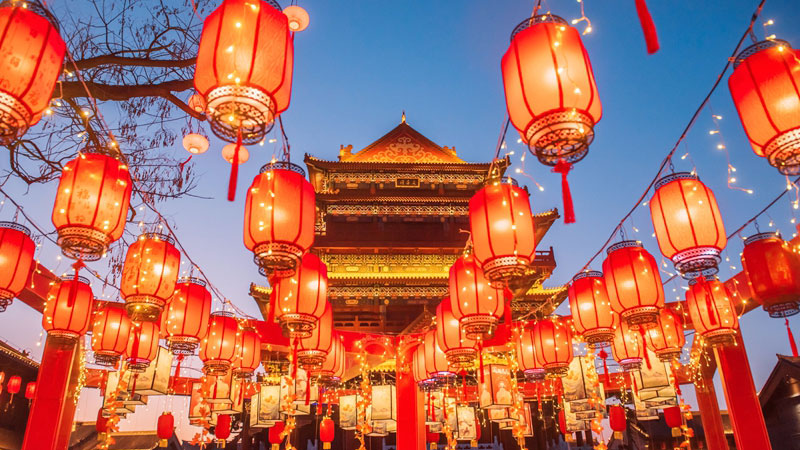Bloc confrontation leads nowhere, mutual benefit and win-win results prevail

Photo taken on May 28, 2021 shows the U.S. Capitol building behind a traffic sign in Washington, D.C., the United States. (Xinhua/Liu Jie)
The current U.S. administration has been obsessed with building "small circles" around the world in an attempt to contain China, slow and even hinder China's development.
The practices, including fueling group politics and provoking bloc confrontation, run against the trend of the times and have aroused wide concerns of the international community.
More and more U.S. allies have realized that blindly following in the footsteps to oppose China will lead them nowhere. Instead, keeping the U.S.' China policy at arm's length and strengthening strategic autonomy is in their own interests, and adopting rational and pragmatic policy toward China is the right way.
Insisting on regarding China as its imaginary enemy, the U.S. has identified China as "America's most consequential geopolitical challenge".
U.S. politicians have hyped up the so-called "China threat" all over the world and sown discord between China and relevant countries. By taking advantage of allies' traditional reliance on the U.S., it has taken a carrot-and-stick approach to persuade and even coerce its allies to choose sides.
The U.S. has concocted the so-called "democracy versus authoritarianism" narrative, attempting to create an alliance in a bid to expand its military bloc.
Such practices of the U.S. aimed at provoking bloc confrontation have posed serious challenges to the stability of international order and threatened the peace and security of the Asia-Pacific region and the world.
When it talked about "allies", "values", and "international rules", what the U.S. is truly thinking about are "America's interests", "America First", and "American hegemony".
The country has taken submarine orders worth tens of billions of U.S. dollars away from France, introduced the Inflation Reduction Act to protect and even expand its manufacturing in a way that has almost bled the European manufacturing dry and recklessly forced its allies into "decoupling" from China.
Facts have proved that the U.S. regards its allies merely as its pawns and takes for granted that the interests of its allies must give way to the selfish interests of American hegemony.
As John Menadue, former Australian Ambassador to Japan, put it bluntly, the U.S. is a "dangerous, erratic and risky ally."
America has always wanted to maintain a technological edge over other economic powers, and these days, however, it is pursuing that goal in a new way: "We have moved from a 'run faster' to a 'run faster and trip the other guy' policy," pointed out an article published on the website of British weekly magazine The Economist.
History has proved time and again that confrontation only brings catastrophic consequences. The U.S.' attempt to contain and suppress China by copying the old "Cold War playbook" represents its serious misjudgment of the international situation and the trend of the times.
The world is no longer what it used to be. Today, the interests of countries are deeply entwined. As the proverb goes, "One who tries to blow out other's oil lamp will get his beard on fire."
Protectionism and unilateralism can protect no one; they ultimately hurt the interests of others as well as one's own. Even worse are the practices of hegemony and bullying, which run counter to the tide of history.
A stable international order is a global public good that is essential for every country. Deliberately provoking confrontation and creating divisions will only damage the common interests of the international community.
As a major trading partner for more than 140 countries and regions, China has been deeply integrated into the world economy and international systems. Isolating China and limiting cooperation with China serves no one's interests and will by no means become a reality.
China's development generates opportunities for world peace and development. The wishful thinking of certain people in the U.S. to contain China can find no support in the international community.
As many far-sighted personages, including former U.S. Secretary of the Treasury Henry Paulson, pointed out, nearly two-thirds of countries trade more with China than with the U.S. Instead of decoupling or deintegrating, many countries are deepening their trade with China.
Many of the U.S.' allies have realized that the Cold War mentality is outdated and that following the U.S. in provoking a new Cold War does not conform to their interests.
French President Emmanuel Macron called on China and the U.S. to avoid confrontation and stressed that the China-U.S. power struggle poses a huge risk and challenge.
German Chancellor Olaf Scholz said China is an important trading partner for Germany and for Europe as a whole, and that Germany firmly supports trade liberalization, supports economic globalization, and opposes decoupling.
Germany stands ready for closer trade and economic cooperation with China, and supports more mutual investment by Chinese and German businesses, he said, noting that a multi-polar world is needed and that Germany opposes bloc confrontation.
China does not pursue expansion, pointed out President of the European Council Charles Michel, noting that China is an important partner for upholding the purposes of the UN Charter and supporting multilateralism.
The EU is ready to become a reliable and predictable cooperation partner for China, Michel said.
Many countries in the Asia-Pacific region have also stayed vigilant to U.S.' provocation of bloc confrontation.
General Secretary of the Communist Party of Vietnam Central Committee (CPVCC) Nguyen Phu Trong emphasized that Vietnam will not allow any country to establish a military base in Vietnam, or join any military alliance, or use force against any country, or work with one country to oppose another.
Leaders of the Philippines, Thailand, and other Asia-Pacific countries have also made it clear that they will not choose sides between China and the U.S.
The U.S. should let go of its obsession with the Cold War. It should understand that the American hegemony can find no support, bloc confrontation would only lead to a dead end, building "a small yard with high fences" would result in isolation and retrogression, and "decoupling" would hurt others without benefiting itself.
It should adopt a calm, rational, and realistic attitude toward its relations with China and stop containing and suppressing China. In particular, it should truly put into practice its promise that the U.S. side has no intention to seek "de-coupling" from China, to halt China's economic development, or to contain China.
As a major country in the world, the U.S. ought to shoulder its due responsibilities for the peaceful development of the world.
(Zhong Sheng is a pen name often used by People's Daily to express its views on foreign policy and international affairs.)
Photos
Related Stories
- China blasts ‘spy balloon’ hype, urges communication to avoid misjudgment
- Chinese, U.S. scientists design stretchable seal for electronic devices
- China strongly opposes U.S. move to shoot down unmanned airship
- China confirms unintended entry of civilian airship into U.S. airspace due to force majeure
- Senior Chinese official calls for timely communication between China, U.S. to avoid misjudgment
- Decoupling from China is not the answer
Copyright © 2023 People's Daily Online. All Rights Reserved.









